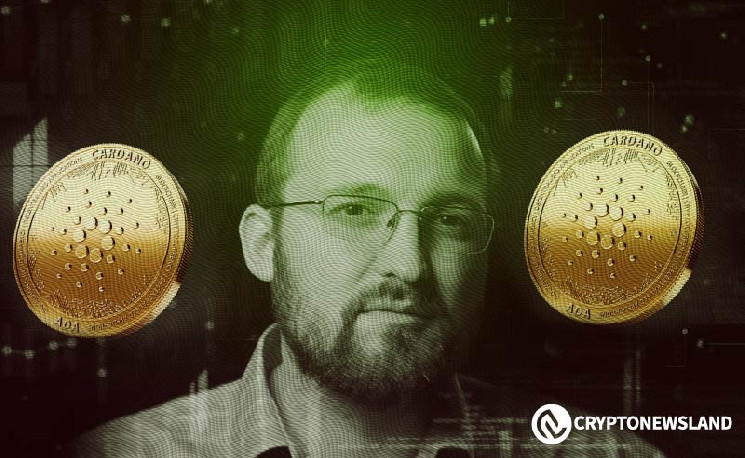[ad_1]
- Charles Hoskinson calls for a fresh start in blockchain communities, urging unity to propel crypto into the mainstream by 2025.
- Despite past tensions with rival ecosystems, Hoskinson believes the time is ripe for collaboration to expand blockchain’s global impact.
- Cardano’s founder emphasizes the importance of setting aside past conflicts to unlock the full potential of blockchain technology.
Charles Hoskinson, the founder of Cardano, has urged the blockchain community to work on building the crypto ecosystem. In his latest post on X, Hoskinson addresses conflict with rivals of such ecosystems and asks the Cardano community to look forward to a new beginning.
One suggestion that I have for all of us in the Cardano community is to let the comments and opinions of the past go and embrace a full reset of all ecosystems. As many of you know, I’ve been a bit prickly towards other communities and have apologized to BTC, XRP, Solana, and…
— Charles Hoskinson (@IOHK_Charles) November 30, 2024
Hoskinson regretted past remarks targeting Bitcoin, XRP, Solana, and others. He highlighted that many influential figures from these communities had also made critical statements about Cardano. However, he noted that perceptions of Cardano’s technology are shifting, with more leaders now revisiting its capabilities.
With 2025 seen as a pivotal year for blockchain adoption, Hoskinson emphasized overcoming past divisions. He urged communities to collaborate, viewing this as an opportunity to bring blockchain to the mainstream, grow the market significantly, and influence homes and governments globally.
Blockchain Community Disputes History
Hoskinson’s career has been followed by Conflict within the blockchain community. Ethereum’s co-founder left in 2014 after the tension between the two organizations regarding the structural formation of Ethereum. Hoskinson favored selling the platform, which clashed with Ethereum’s Buterin’s stance on a non-profit model.
Following his exit, Hoskinson launched Cardano and positioned it as the better alternative for Ethereum since decentralized governance is in its foundation. His critiques of Ethereum’s governance model, which he described as overly centralized, fueled ongoing tension between the two platforms.
The friction extended to other ecosystems. Hoskinson often promoted Cardano as a rival to Bitcoin, citing its proof-of-stake model and smart contract capabilities. His remarks stirred debates with Bitcoin supporters, who viewed his claims as confrontational.
Similarly, Hoskinson clashed with the XRP community during Ripple’s legal battles with the SEC. Referring to its supporters as “XRP trolls,” his statements escalated the tension between the two communities.
A Shift Toward Cooperation
In addition to verbal disputes, Hoskinson has taken legal action over perceived industry biases. Recently, he threatened to sue Wyoming’s Stable Token Commission after Cardano was excluded from a state-supported stablecoin project, which included Ethereum and Solana.
Despite controversies surrounding his career, including accusations of embellishing credentials and past public disputes, Hoskinson is now advocating for reconciliation. He has underscored the urgency of cooperation to realize the potential of blockchain technology on a global scale.
Hoskinson’s message to the Cardano community highlighted the need to overcome previous conflicts. By prioritizing collaboration and setting aside tribalism, he believes blockchain leaders can seize the opportunity to transform the industry and expand its impact significantly in the coming years.
[ad_2]

